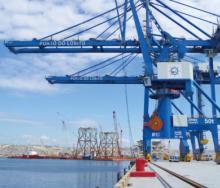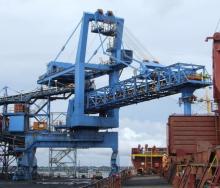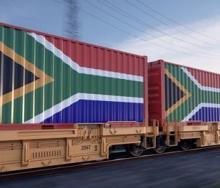Revenue Services Lesotho is pressing ahead with the implementation of the Taxpayers Identification Number (TIN) system scheduled for Tuesday, despite ongoing concerns from cross-border traders and unresolved issues related to digital declaration incompatibilities.
Be that as it may, there was no more wiggle room for non-compliant shippers dealing with the mountain kingdom, said divisional director of clearing and forwarding at Value Logistics, Stephen Segal.
“It’s official, it’s mandated and it will be implemented from 1 July,” he said.
The TIN measure was initially meant for implementation last year but postponed on several occasions because of digital synchronicity issues.
And although it’s not certain whether RSL has ironed out sticking points with the Automated System for Customs Data (Asycuda), used by all members of the Southern African Customs Union, the customs die is cast.
“Agents simply have to comply,” Segal said, “although they still don’t really know the final mapping of changing entries on Asycuda looks like.”
It is understood that RSL has undertaken to address and resolve these concerns by June 27.
As for compliance, Segal said: “A lot has changed.
“In the beginning there were only a couple of agents and they were charging the most ridiculous fees.”
Kickback from industry, including the refusal to share certain client-confidential information, eventually led to more lenient accommodations, finally resulting in fee reductions of as much as 400%.
Segal said about 150 agents had now complied with the TIN reg, whereby exporters must work through representatives registered with the Agents of Foreign Firms Association of Lesotho (Affal).
He also warned that exemption timelines for TIN were fast running out and ordinarily took about 48 hours.
“The balance of our clients have either gone the full route and employed an agent that is now on board, or are employing agents to do their marketing, sales and product checks in Lesotho.”
Segal said although there had been initial reservations, expressed by some in the industry as to RSL’s intentions with what appeared to be a non-tariff barrier, the tax benefits for Lesotho had become clear.
Asked what his advice would be to new clients approaching Value Logistics for shipments into Lesotho, he said the best thing to do was to approach Affal and make sure they complied with what was essentially a bona fide indigenisation drive.
He said whereas they sat on an initial compliance level of about 27%, the company went on an aggressive compliance drive and now had about 70% of their clients on board with the new reg.
He also cautioned against unscrupulous agents.
“We’ve looked into some of them, especially those with Gmail addresses. In many instances we Googled them and found out it’s someone sitting next to a garage.”













